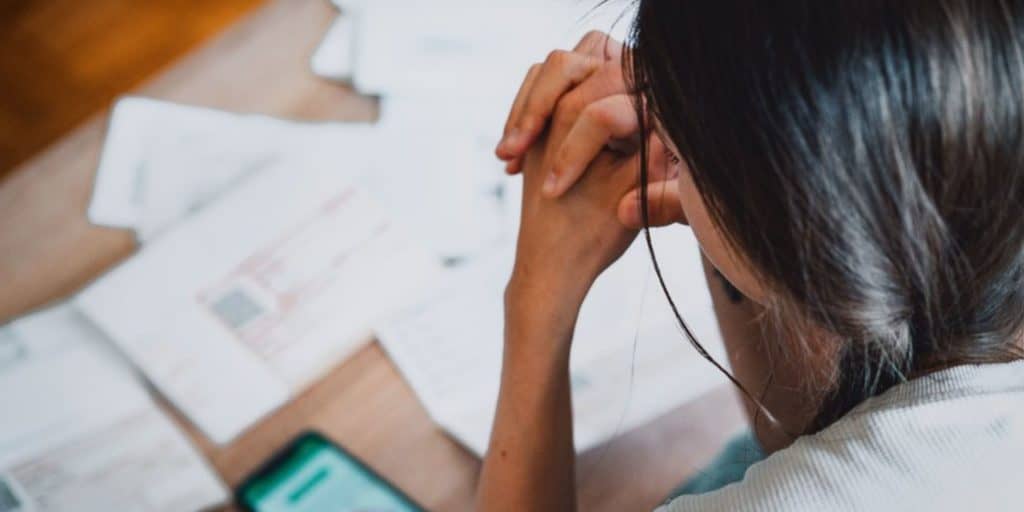People Burdened By Medical Debt After Pandemic
Nikki Attkisson | Last Updated : July 20, 2021One new survey indicates many Americans are unable to pay medical bills as a result of the Coronavirus pandemic. A survey conducted by The Commonwealth Fund, a nonprofit organization that advocates a high-performing health care system, found that nearly half of those who contracted COVID-19 or who lost income as a result of the pandemic faced medical debt.
People Burdened By Medical Debt After Pandemic
Sara Collins, vice president for health care coverage and access at The Commonwealth Fund, said a positive aspect of the report is that federal efforts toward coverage and access may have offset the losses of insurance during the pandemic.

It is a struggle for a third of Americans to pay their medical bills, even if they have health insurance. Most people who have medical debt problems are those who were affected by the pandemic, losing their incomes or their health insurance during it, or acquiring COVID-19. Collins said that these people need to pay large bills.
In the study, researchers found that more African Americans and Hispanics faced affordability problems due to the cost of health insurance. The COVID-19 pandemic also caused a lot of debt and medical bills for those who suffered the most.
Adults aged 19 to 64 affected by the pandemic in either of these ways reported more difficulty paying medical bills and having financial issues than those not affected in these ways. Despite this, Collins said that many Americans do not realize the significance of the problem. She said we should address the issue by changing benefit designs, but also how we think about medical debt.
Families USA, a national, nonpartisan organization devoted to advocating for health care consumers, is led by Frederick Isasi. According to him, the study reaffirms how vulnerable our communities have been since last year’s pandemic struck. Those most in need have been the most severely affected by both the health and economic effects, he said.
According to Isasi, we must ensure they receive the best health care without saddling them with medical debt or preventing them from filling prescriptions for life-saving medicine because of rent and medical expenses.
Asasi urged congress to pass a Democratic resolution for the budget and a reconciliation package that ensures Medicare includes dental, gives back access to hearing and vision care, and limits drug companies’ discriminatory price increases to make health care affordable and accessible to everyone.
According to the survey, the following key findings emerged:
- The pandemic was more likely to cause financial difficulty for black and Hispanic adults as well as to cause income loss.
- The percentage of Blacks and Hispanics who have trouble paying medical bills and debt is higher than that of whites, at 55% and 44% respectively.
- During the pandemic, more than one-third of American adults lost income. The recession has been particularly hard on African-Americans as well as Hispanics, as 44% of African-Americans and 45% of Hispanics report losing their jobs.
- Approximately a third of insured adults and nearly half of uninsured adults said they had trouble paying medical bills or were in debt.
- Work-coverage adults reported that 34% and 46%, respectively, have personal or marketplace health insurance coverage problems.
Nearly 5,500 American adults aged 19 to 64 were surveyed between March 9 and June 8. The US News & World Report recommends some ways for people to get help paying for their medical bills, including:
- Medical bills should be checked for errors.
- Your insurer or hospital should be able to negotiate medical bills.
- Pay your medical bills with help. Your hospital bills may be completely canceled by some nonprofit hospitals.
- File for bankruptcy if necessary.
- Discover how to reduce your medical debt. Federal and some state governments offer assistance during the Coronavirus pandemic.
- To reduce or forgive your medical bills, contact your state’s health insurance department.
Dr. Susan Rogers, president of Physicians for a National Health Program, said that the main problem is the way health insurance in America works.
It’s not possible to cover everyone with insurance – it’s not constructed for that purpose. According to Rogers, this is the reason he supports Medicare-for-all or single-payer health insurance because there is no other plan that covers everybody. While many have tried over the years, Rogers noted, no one has ever dealt with all the financial hardships that accompany the pandemic.
The problem with insurance companies now is that they’re bleeding everyone, and this cannot be sustained in the long run. All the costs keep going up, she said, insurance premiums, copayments, and deductibles. There has been an increasing split between those who have and those who don’t, and that is not sustainable.
Read About: MoonLight Manifestation Reviews
With over 15 years as a practicing journalist, Nikki Attkisson found herself at Powdersville Post now after working at several other publications. She is an award-winning journalist with an entrepreneurial spirit and worked as a journalist covering technology, innovation, environmental issues, politics, health etc. Nikki Attkisson has also worked on product development, content strategy, and editorial management for numerous media companies. She began her career at local news stations and worked as a reporter in national newspapers.
